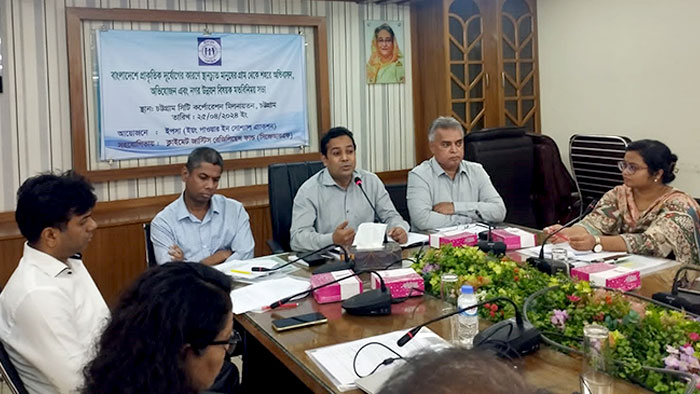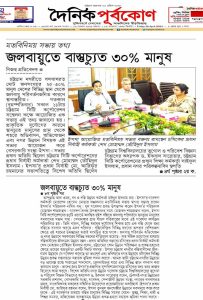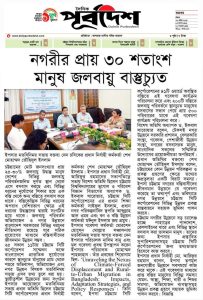YPSA organized consultation workshop on research finding sharing on Contextual Analysis of Impact of Climate Migrants who are displaced from climate forced natural disasters, their adaptation practices and challenges on Urban Development of Chattogram city on 25th April 2024 at Chittagong City Corporation auditorium with the support of Climate Justice Resilience Fund (CJRF).
Md. Arifur Rahman, Chief Executive of YPSA presided the meeting while Shekh Mohammad Touhidul Islam, Chief Executive Officer of Chattogram City Corporation was present as chief guest. Professor Dr. Iqbal Sarwar, Department of Geography and Environmental Sciences, Chittagong University and Md. Saiful Islam, Chief Education Officer was present as special guest of the event.
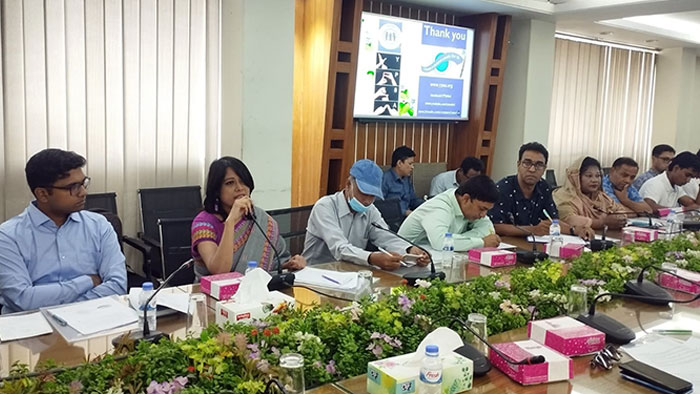
Morshed Hossan Molla, Manager (Research) of Knowledge Management for Development of YPSA moderated the meeting. Nasim Banu, Director (Social Development) of YPSA has given welcome speech to the audience. The research paper titled “Unravelling the Nexus of Climate-Forced Displacement and Rural-to-Urban Migration in Bangladesh: Impacts, Adaptation Strategies, and Policy Responses” was presented by Mohammad Shahjahan, director of the Research Cell Knowledge Management for Development (KM4D) of the organisation.
In the presentation, he said that the data was compiled after interviewing 540 residents of 20 slums in 41 wards of the city. Approximately 25-30% of the population at around 600 slums in Chattogram city are climate migrants. Their occupations include housewives (25.3%), labourers (12.8%), unemployed (11%), domestic workers (8.7%), and garment workers (4.5%), the study finds. A total of 36.8% of them have a monthly family income of Tk 10,000-15,000, 24.4% have an income of Tk5,000-10,000, and 18% have an income of more than Tk20,000, it said. The data was compiled after interviewing 540 residents of 20 slums in 41 wards of the city.
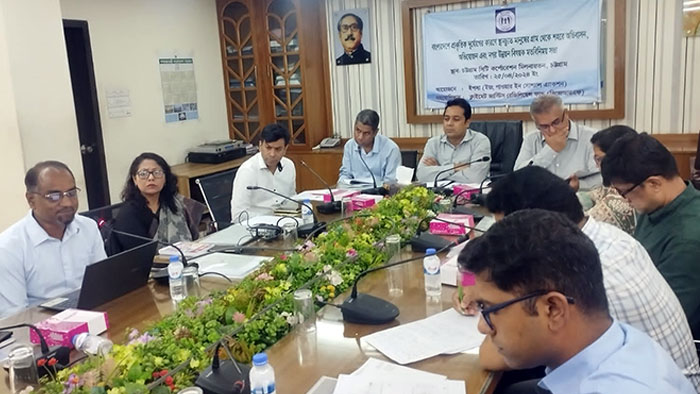
While presenting the research paper, Mohammad Shahjahan said no specific information on the number of slums was found from various organisations while reviewing the literature of the research. “There was a lot of variation in the data on the number of slums and the residents of slums. This is the preliminary phase of the research. We will continue the research activities on a larger scale,” he added. The study noted that 50.9% of the slum dwellers have temporary houses made of bamboo and tin while 40.5% of the houses are semi-pucca and 7.3% are pucca. Only 15% of the people interviewed are aware of climate change and the remaining 85% of the people are unaware of this issue. A total of 70.4% of the climate refugees have fallen victim to river erosion, 15% to floods, 5.3% to tidal surges, 4.4% to cyclones and 1.3% to sea level rise have found new migration. Of these, about 40% of the people have been displaced once, 30% twice, 20% three times and 10% have been displaced once due to climate change.
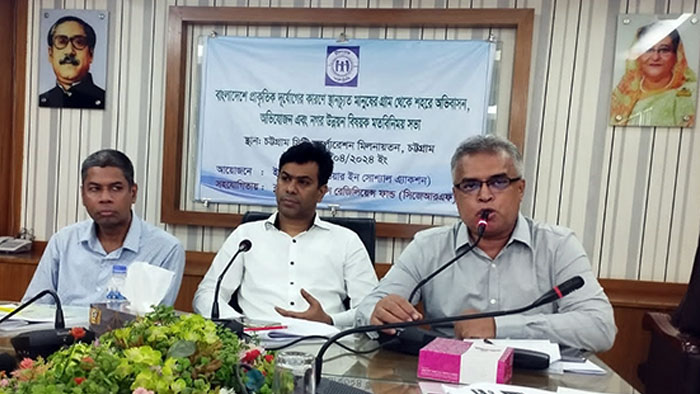
Md. Arifur Rahman said, YPSA always works for the development of the community. The various problems of slum people such as health, education, women and children problems, adaptation measures obtained through this research will play a helpful role in development projects. YPSA always working with the Government agencies as a partner for various social development programs from its establishment. So, this research finding has given lots of opportunities for the local government authorities and department respective department for work further on slum development and work for climate migrants. YPSA has been working for the capacity building of climate displaced people and community people in the climate change affected areas of south-eastern coast of Bangladesh. Besides, YPSA relocating climate displaced households and construction of disaster affected houses in the coastal areas. Further, different need based skill development training and capital support for the climate displaced people for their alternative livelihood through addressing rights and needs of climate change affected communities.
Special guest urban development researcher Dr. Iqbal Sarwar, Professor of Department of Geography and Environmental Science, Chittagong University said that the joint initiative of the government administration, non-governmental organizations, researchers, professional development organizations, people living in the city, journalists is essential for sustainable urban development. Md. Saiful Islam, Chief Education Officer of Chittagong City Corporation said that Chittagong City Corporation working for planned urbanization and improvement of the economic lifestyle of the urban migrants in the city and low cost education and health facilities for the marginalized population of the city area. So, we will try to implement the recommendation of research finding of YPSA in the working affordability of the Chittagong City Corporation.
Chief Guest of the workshop, Chief Executive Officer of Chittagong City Corporation, Mr. Sheikh Mohammad Touhidul Islam said in the speech of the chief guest that the insufficiency of information is a big problem in undertaking any development plan and project of Chittagong. The research done by YPSA on improving the living standards of slum dwellers in Chittagong city is informative and will play a helpful role in implementing various development projects of Chittagong City Corporation in future urban development. We know that the biggest challenge in the development of Chittagong city is the floating people living at the foot of the hill, along the railway line and in different places. For them, the recommendations proposed by YPSA will serve as a data repository for the Chittagong City Corporation.

